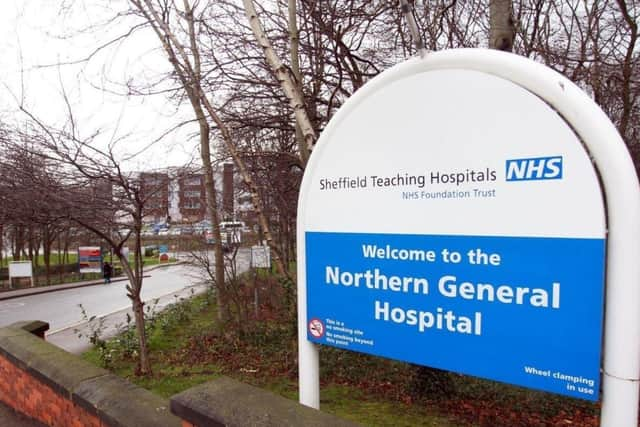Sheffield teaching hospitals apologise after figures reveal £31 million in damages paid due to failings that lead to cerebral palsy
and live on Freeview channel 276
A freedom of information request submitted to NHS Resolution showed that the trust settled 11 clinical negligence claims related to the lifelong condition, paying out more than £31 million in damages between the financial years of 2010/11 and 2020/21.
This means, the trust paid out more than £31 million in damages - an average of £2.8 million per case and £3 million in legal fees.
Advertisement
Hide AdAdvertisement
Hide AdSpecialist clinical negligence law firm Lime Solicitors, who revealed the figures, said in 2020/21, 268 new claims were brought forward nationally - the highest in at least a decade.


The same data also revealed that almost one in 12 cerebral palsy cases could have been avoided over the past 10 years, with trusts across the country paying out a total of £4.3 billion in damages and £613 million in legal fees across 1,441 clinical negligence cases.
Dr Jennifer Hill, Medical Director at Sheffield Teaching Hospitals NHS Foundation Trust, said: “Our staff work hard to provide good care to women and their babies and we are very sorry that during the past ten years there have been issues with some aspects of the care relating to eleven babies that have resulted in brain injury.
"Whilst there have been successful claims and an apology relating to these children, we know that no amount of money can compensate for the injury that was sustained.
Advertisement
Hide AdAdvertisement
Hide Ad"In every case where care has not been as expected, we carry out a full review to ensure that lessons are learned and changes made where appropriate.”
‘Negligent injuries resulting in cerebral palsy should not take place’
Robert Rose, head of clinical negligence at Lime Solicitors, said: “One of the main causes of cerebral palsy is hypoxic brain injury during childbirth, which is where a baby’s brain gets starved of oxygen. Sometimes, this cannot be prevented or it is impossible to work out what caused the child’s injuries.
“However, negligent mistakes by healthcare professionals can lead to a child sustaining a hypoxic brain injury. Errors can include delayed delivery, birth injuries, failing to respond to the umbilical cord being wrapped around a baby’s neck, and missing signs of foetal distress, such as meconium.
“Our NHS is fantastic. While the first duty of a healthcare system is to do no harm, sometimes things do go wrong and care falls below medical standards. Clinical negligence claims play a critical role in safeguarding patients against negligent treatment.
Advertisement
Hide AdAdvertisement
Hide Ad"In all my cases, clients are predominantly seeking to establish the truth, an apology and to prevent healthcare professionals from making the same mistakes in the future.
“Negligent injuries resulting in cerebral palsy should not take place and we know the lessons that should have been learned, but unfortunately time and time again, the same mistakes are made.
"Regrettably, I have seen many of these mistakes before and we will look to obtain the appropriate expert evidence to guide the family through the complex legal process as arrangements are put in place to assist their child.”
